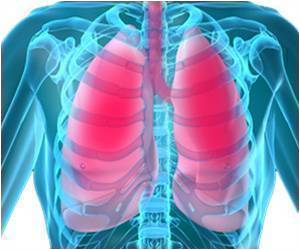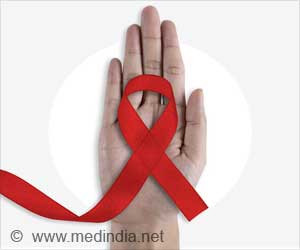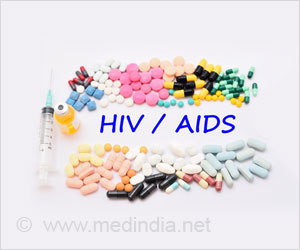An international clinical trial has shown that a widely used drug for herpes simplex virus-2 (HSV-2) does not reduce the risk of HIV transmission when taken by people infected with both HIV and HSV-2.
The widely drug for herpes simplex virus-2 (HSV-2) is ineffective in cutting risk of HIV transmission, an international clinical trial has shown. The trial subjects were people infected with both HIV and HSV-2.
The drug tested in the multi-centre trial was acyclovir, which is the most common cause of genital herpes.While five preliminary studies had shown that the amount of HIV in the blood and genital tract could be reduced through treatment to suppress HSV-2, they did not measure whether that translated into a reduction in HIV transmission.
Scientists hoped that acyclovir's ability to suppress the herpes virus might reduce the likelihood of sexual transmission of HIV from a person with HIV and HSV-2.
The present study was conducted to determine whether twice daily use of acyclovir by individuals who are infected with both HSV-2 and HIV reduced the transmission of HIV to their sexual partners.
Led by the University of Washington in Seattle, and funded by the Bill and Melinda Gates Foundation, the Partners in Prevention HSV/HIV Transmission Study involved 3,408 African HIV discordant couples, in which one partner had HIV and the other did not.
In all the couples, the partner who had HIV also had HSV-2 infection.
Advertisements
"A clinical trial of genital herpes suppression in HIV discordant couples is the most direct way to see if we can make a person less infectious and less likely to transmit HIV to their partner. The study did find that acyclovir significantly reduced genital ulcers due to HSV-2 and modestly reduced HIV levels in the blood, consistent with what the preliminary studies of HSV-2 suppressive treatment had shown. However, it appears that these effects were not sufficient to reduce the risk of HIV transmission," said Dr. Connie Celum, the leader of the study and a UW professor of Global Health and Medicine in the Division of Allergy and Infectious Diseases.
Advertisements
The researchers found that HIV disease progression was slowed by 17 per cent by acyclovir.
Though the result was encouraging, the researchers said that the modest effect observed in this study might not be sufficient to promote use of acyclovir for slowing HIV disease.
"Although the primary outcome of reducing HIV transmission was not observed, the study yielded important information that will inform HIV prevention research in a number of ways," Celum said.
"Based on the findings from this study, we now better understand the relationship between HIV levels and HIV transmission. This shows us that the 'bar' is higher than we anticipated for the amount of reduction in HIV levels needed in order to reduce HIV infectiousness and transmission. This is relevant for other interventions, such as anti-retroviral drugs to treat HIV, treatment of co-infections such as malaria, and therapeutic HIV vaccines. This understanding is a major contribution to HIV research that will help guide our search for new HIV prevention and treatment strategies," Celum added.
Source-ANI
TAN/L















